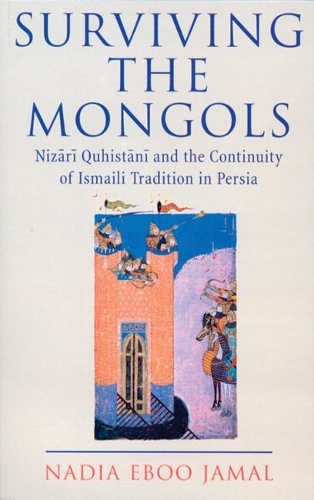
Surviving the Mongols: Nizari Quhistani and the Continuity of the Ismaili Tradition in Persia
(Hardback)
Publishing Details
Surviving the Mongols: Nizari Quhistani and the Continuity of the Ismaili Tradition in Persia
By (Author) Nadia Eboo Jamal
Bloomsbury Publishing PLC
I.B. Tauris
26th July 2002
United Kingdom
Classifications
Tertiary Education
Non Fiction
Islam
General and world history
297.8220955
Physical Properties
Hardback
208
Width 138mm, Height 216mm
Description
I.B. Tauris in association with the Institute of Ismaili Studies
The Mongol invasion of Iran in the 13th century was a catastrophic event for all its inhabitants. For the persian Ismaili in particular, it put an end to their political aspirations and independent existence for many centuries. It has been held by many historians that subsequent to the fall of the central Ismaili fortress of Alumut to the Mongols, the community was virtually extripated from the region and its institutional network dismantled until its revival in the 16th century under the Safavid dynasty. Such an expansive view of post-Alumut Ismailism is questioned by this study which examines the poetic writings of Nizari Quhistani, one of the Ismaili authors who survived the Mongol invasion. The evidence of his writings demonstrate that while the Ismaili community was seriously impaired, its organizational structure and internal coherence were in no means decimated but continued to operate in different forms through the Mongol period of Persian history.
Reviews
"...sheds a welcome light on the Il-Khanate in general, and the Persian Ismailis and Nizari Quhistani (1247-1320) in particular." -George Lane, Cambridge School of Oriental & African Studies Journal
Author Bio
Nadia Eboo Jamal received her doctorate in Near Eastern Languages and Literature from New York University, and is a specialist in Iranian history and culture in the period of Mongol rule.
